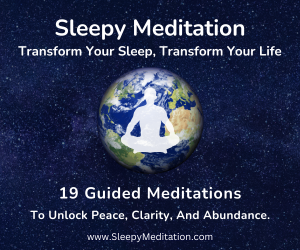Mastering Mindfulness: The Art of Cultivating a Present and Peaceful Life
Life can often feel chaotic and overwhelming, with our minds constantly racing and our attention pulled in a million different directions. In the midst of this chaos, finding peace and presence can seem like an impossible task. However, with the practice of mindfulness, we can learn to cultivate a sense of calm and clarity in our lives. In this article, we will explore what mindfulness is, how to practice it, and the benefits it can bring to our lives.
What is Mindfulness?
Mindfulness is the practice of being fully present and aware in the current moment, without judgment or attachment to the past or future. It involves paying attention to our thoughts, feelings, and sensations without getting caught up in them. By cultivating mindfulness, we can learn to live more fully in the present moment and experience a greater sense of peace and contentment.
How to Practice Mindfulness
There are many different ways to practice mindfulness, but one of the most common and effective methods is through meditation. To begin a mindfulness meditation practice, find a quiet and comfortable space where you can sit or lie down without distractions. Close your eyes and focus on your breath, noticing the sensations of each inhale and exhale. If your mind begins to wander, gently bring your attention back to your breath without judgment.
In addition to formal meditation practices, mindfulness can also be incorporated into everyday activities such as eating, walking, or even washing the dishes. By bringing our full attention to these mundane tasks, we can learn to appreciate the beauty and richness of each moment.
The Benefits of Mindfulness
There are numerous benefits to practicing mindfulness, both for our mental and physical well-being. Research has shown that mindfulness can reduce stress, anxiety, and depression, as well as improve focus, memory, and cognitive function. By cultivating a present and peaceful mind, we can also enhance our relationships, creativity, and overall quality of life.
Common Questions About Mindfulness
Is mindfulness just another form of meditation?
While mindfulness and meditation are closely related, they are not the same thing. Meditation is a formal practice that involves sitting or lying down and focusing on a specific object or sensation, such as the breath. Mindfulness, on the other hand, is a state of awareness that can be cultivated both during meditation and in everyday activities.
Can anyone practice mindfulness, or is it only for experienced meditators?
Anyone can practice mindfulness, regardless of their level of experience with meditation. It is a simple and accessible practice that can be incorporated into daily life with just a few minutes of dedicated attention. With time and consistency, anyone can learn to cultivate mindfulness and reap its many benefits.
How long does it take to see the benefits of mindfulness?
The benefits of mindfulness can vary from person to person, but many people report feeling a sense of calm and clarity after just a few minutes of practice. With regular practice, these benefits can become more pronounced and long-lasting, leading to a greater sense of well-being and peace in everyday life.
Conclusion
Mastering mindfulness is a powerful tool for cultivating a present and peaceful life. By learning to be fully present and aware in each moment, we can reduce stress, improve focus, and enhance our overall well-being. Through the practice of mindfulness, we can learn to live more fully in the present moment and experience a greater sense of peace and contentment. So, take a few minutes each day to practice mindfulness and see the positive impact it can have on your life.




































































